Investing in Africa through Understanding and Reciprocity
There’s a Zulu greeting, “Sawubona,” often translated simply as “hello” or “I see you.” But like many profound concepts, this translation barely scratches the surface. Sawubona embodies a deep philosophy of human connection: a commitment to truly see another person in their entirety – their history, their joys and sorrows, their potential, their inherent worth. It’s an invitation to be fully present, to listen without judgement, and to affirm their existence.
The traditional response, “Shiboka,” meaning “I exist for you,” completes this circle of mutual recognition. While rooted in Zulu culture, this ethos of profound seeing offers a powerful, perhaps essential, lens for anyone seeking successful and sustainable engagement across the diverse continent of Africa, particularly in the realm of investment.
Beyond Stereotypes: Seeing with Clarity
For too long, external perceptions of Africa have been clouded by simplistic narratives – either dwelling on challenges or painting a uniform picture of opportunity. Neither view truly “sees” the reality.
Africa is a continent of immense contrasts, defying easy categorization. Consider Kenya, where the revolutionary mobile payment system M-Pesa annually processes transactions equivalent to over half the country’s GDP, showcasing technological leadership many Western nations haven’t achieved. Yet, in Nigeria, Africa’s largest economy, Lagos still grapples with significant infrastructure deficits. This diversity exists not just between nations but within them.
Understanding this complexity means moving past generalisations and appreciating the specific context. Applying the Sawubona philosophy compels investors and business leaders to look beyond these generalisations. It demands a commitment to understanding the specific context of a particular country, region, or community. This means:
As one Rwandan tech entrepreneur bluntly stated at a recent forum, “We don’t need people who see either tragedy or untapped gold mines. We need partners who see us as we are”. This requires acknowledging how history, including the legacies of colonialism, shapes present-day realities and recognising that the most valuable insights often come from local communities and experts themselves.
Trust: The Bedrock of African Investment
In the world of investment, the adage “money moves at the speed of trust” holds particular weight. Nowhere is this more apparent than when navigating the cross-cultural, relationship-driven markets prevalent across Africa. Building genuine trust, especially where history might suggest caution, isn’t just a ‘nice-to-have’; it’s fundamental to unlocking opportunities and ensuring the long-term viability of any venture.
When Ghana’s central bank undertook major reforms in 2019, revoking some licenses, investors who had cultivated deep, trust-based relationships with local partners were significantly better positioned to navigate the uncertainty than those with purely transactional ties. This underscores how the Sawubona philosophy transitions from a concept to a practical business imperative.
Achieving this level of trust requires more than contractual agreements. It demands investing significant time on the ground, moving beyond fly-in, fly-out meetings to build genuine rapport through repeated interactions and shared experiences. It necessitates active listening – the kind that seeks to understand, not just to respond. As one Tanzanian business leader aptly put it, “We can tell within minutes if someone is here to impose their ideas or truly understand ours”.
It also means demonstrating unwavering reliability through consistent actions, showing partners and communities that your presence is intended for mutual benefit – a tangible demonstration of “Shiboka.” When partners feel genuinely seen and respected, the confidence needed for significant financial commitments naturally follows.
From Transactional Deals to Transformative Partnerships: A Case Study
Consider the potential pitfalls of overlooking this approach. A top-down renewable energy project, for example, might secure land rights and permits through purely legal channels but fail to engage meaningfully with the local community. The result? Potential delays from disputes, difficulty securing local labour, and a lack of community ownership or protection of the asset. The project exists on the land, but not truly with the people.
Contrast this with an initiative like the Lake Turkana Wind Power project in Kenya. While any large-scale project faces complexities, its relative success involved years of community engagement before major construction began. This included navigating complex land tenure issues respectfully, investing in local infrastructure like roads and water access beyond the project’s immediate needs, and prioritising local employment. This wasn’t just corporate social responsibility; it was a strategic decision rooted in understanding that the project’s long-term security and success were intertwined with the community’s well-being.
Furthermore, successful approaches often involve working with stakeholders to define what success looks like, sometimes prioritising measurable outcomes like local job creation or tangible skills transfer alongside, or even ahead of, maximising immediate profit margins. This reflects the move away from purely extractive models towards patient, catalytic capital focused on co-creating value.
Reciprocity and Sustainable Presence
This deep seeing naturally invites reciprocity. For investors and businesses, embracing the spirit of “Shiboka” – “I exist for you” – is demonstrated through tangible actions. It means operating with transparency, particularly ensuring deal structures are clear and comprehensible to local partners. It involves holding oneself accountable to commitments made to partners and communities, fostering local capacity rather than dependency and embedding fair practices throughout the value chain. It’s about establishing a presence that contributes positively to the local ecosystem, not just financially, but socially and environmentally too.
Seeing the Path Forward
Sawubona offers far more than a culturally sensitive greeting. It presents a profound philosophy for engagement, urging us to move beyond superficial observation towards deep understanding and mutual respect. For those looking to invest in or do business across Africa, adopting this mindset is arguably the most astute strategy available: this approach isn’t merely ethical—it’s practical. It helps investors see opportunities others miss, build partnerships others can’t maintain, and create value that endures beyond initial transactions.
By truly striving to “see” Africa in its vibrant, complex, and dynamic reality, investors and businesses position themselves to build the reciprocal relationships that unlock sustainable success – embodying the powerful connection encapsulated in Sawubona and Shiboka.


